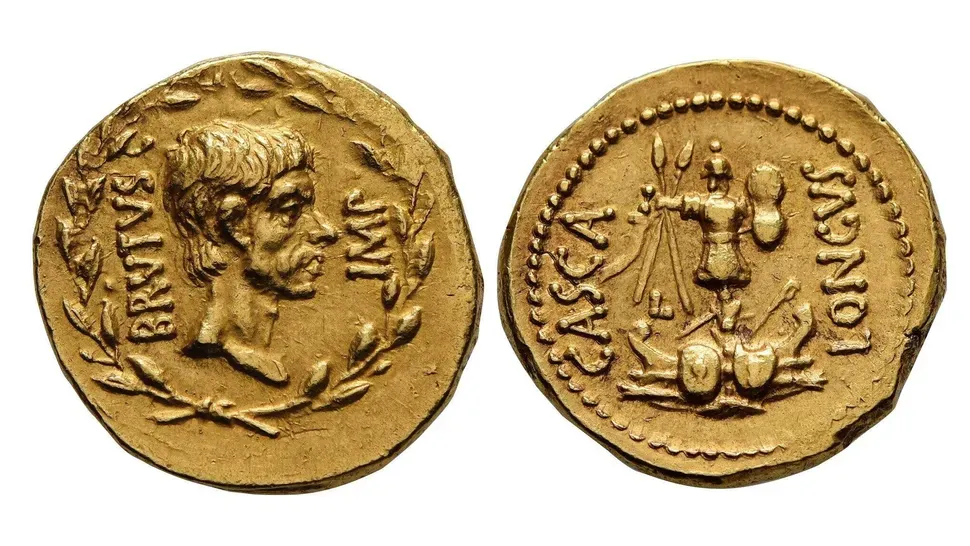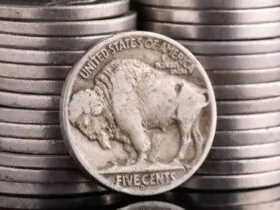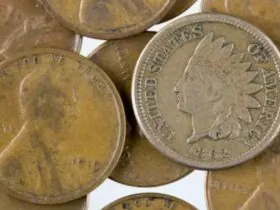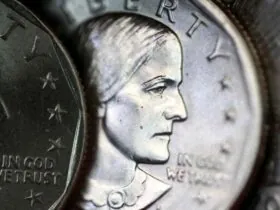A rare and historically significant gold coin minted by Marcus Junius Brutus, one of the co-conspirators in the assassination of Julius Caesar, is set to go up for auction in December 2024. This coin, an aureus, is one of only 17 known to exist and offers a unique glimpse into the tumultuous years following Caesar’s death. With its rich historical context and rarity, this coin holds immense value for collectors and history enthusiasts alike.
The Assassination of Julius Caesar: A Turning Point in Roman History
This Article Includes
On the Ides of March in 44 B.C., Marcus Junius Brutus, along with his co-conspirator Gaius Cassius Longinus, orchestrated the assassination of Julius Caesar. Their aim was to protect the Roman Republic from what they believed was Caesar’s growing power, which threatened the democratic ideals of the state. Despite the involvement of many senators in the plot, Brutus and Cassius were left to face the wrath of the Roman people.
As Caesar lay dying after being stabbed 23 times, he is famously reported to have uttered the words “Et tu, Brute?”—”Even you, Brutus?”—a phrase that would later be immortalized in William Shakespeare’s play Julius Caesar. The assassination set off a series of events that led to civil war and ultimately the rise of Caesar’s successor, Augustus, who would go on to become the first emperor of Rome.
Brutus’ Coinage: A Tool of Survival and Propaganda
After Caesar’s assassination, Brutus and Cassius fled to the eastern provinces, seeking to raise an army. To fund their military campaigns and pay their soldiers, Brutus minted coins, including the silver denarius and the gold aureus. The aureus was a particularly valuable coin, equivalent to 25 denarii, or roughly a month’s pay for a soldier.
Brutus used these coins not only to finance his military efforts but also as a form of propaganda. The coins featured symbols that celebrated his military victories and reinforced his position as a leader. These coins became a powerful tool for shaping public perception and legitimizing his claim to leadership.
The Coin at Auction: A Window into Brutus’ Legacy
The gold aureus going up for auction is one of the rarest examples of Brutus’ coinage. Struck before the Battle of Philippi in 42 B.C., it features a portrait of Brutus on the front. The title “BRVTVS IMP” on the obverse refers to Brutus’ military victory over the Bessi, a Thracian tribe that opposed his control of the region in 43 B.C.
On the reverse side, the coin depicts two conjoined ships’ prows, symbolizing Brutus’ naval victories alongside Cassius in 42 B.C. These victories, however, were ironically short-lived, as Brutus and Cassius were eventually defeated at the Battle of Philippi by the forces loyal to Caesar’s successors.
Lucia Carbone, an expert in Roman coinage at the American Numismatic Society, explains that the victories depicted on the coin were key moments in the struggle between Brutus and Caesar’s allies, but they ultimately led to his downfall. Despite the initial success in battle, Brutus and Cassius were spread too thin across multiple fronts, making their defeat at Philippi inevitable.
The Rarity of the Brutus Coin: A Collector’s Dream
What makes this coin so rare and valuable is its scarcity. Only six stamp dies—two for the front and four for the back—were used to produce this coin, making it one of the most limited pieces of ancient Roman currency. The coin was issued for only a short period, further adding to its rarity.
The aureus also comes from the esteemed collection of Giuseppe Mazzini, an early 20th-century Italian politician and coin collector. Mazzini’s collection is renowned for its historical significance, and items with such provenance are highly sought after by collectors today. The history of ownership adds another layer of value, as collectors are increasingly concerned with the legal and ethical aspects of coin acquisition.
The Auction: A Rare Opportunity for Collectors
This coin is expected to attract significant attention at its auction by Numismatica Genevensis SA on December 9-10, 2024. It will be a rare opportunity for collectors and history enthusiasts to acquire a piece of Roman history with such direct ties to the assassination of Julius Caesar.
The coin’s historical context, rarity, and connection to Brutus, a key figure in one of Rome’s most pivotal moments, ensure that it will be a prized addition to any collection. Whether you are a numismatist, a historian, or simply a lover of ancient Roman culture, this auction presents a chance to own a piece of history that has survived for over two millennia.
Conclusion
The gold coin minted by Marcus Junius Brutus is much more than just a currency; it is a tangible connection to one of the most dramatic moments in Roman history. With its rare design, historical significance, and the story behind its creation, this coin is a valuable piece of the puzzle that tells the story of the fall of the Roman Republic and the rise of imperial Rome. For those fortunate enough to secure it at auction, it will be a reminder of the complex and turbulent era that shaped the course of Western civilization.
Also Read:
THIS IS ONLY A BLOG POST FOR INFORMATION – WE DO NOT BUY, SELL, OR APPRAISE THESE ITEMS







Leave a Reply